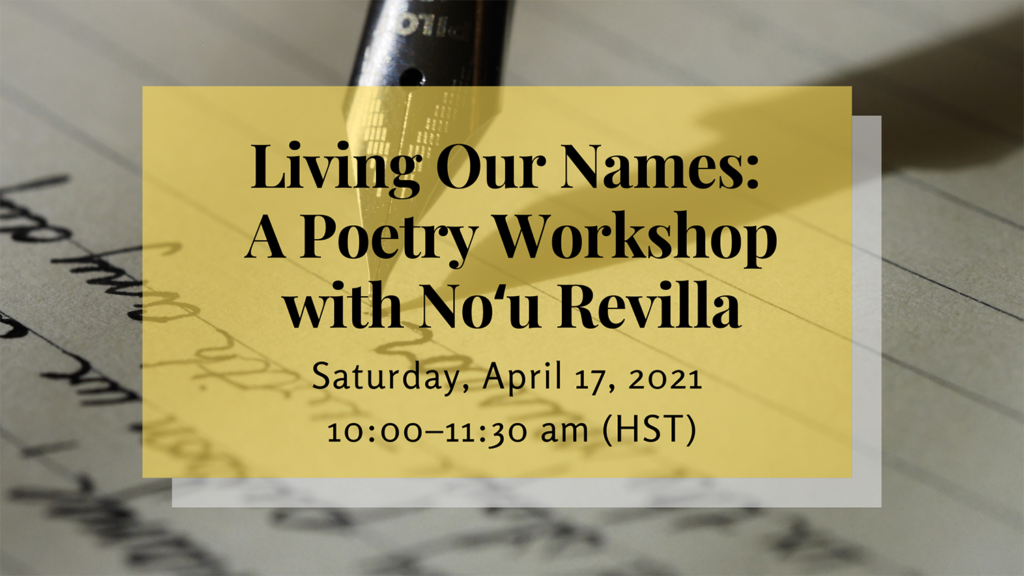
Living Our Names: A Poetry Workshop with Nou Revilla
In this free poetry workshop, held via Zoom meeting, participants are encouraged to consider the history and power of their inoa. Where does your name come from? Where does it push you? How has your name marked your actions and relationships? Beyond genealogical information, how do we believe our names function – as prophecy, prayer, promise?
To open our writing space, we will read two poems by Oiwi poets Puanani Burgess and Brandy Nalani McDougall. Using freewrites, we will work together to create an umeke of metaphors, action words, and aina-based descriptions. Our umeke will be a shared source of inspiration for the final writing period in which we compose poems that honor our names and their stories.
This workshop was inspired by our recent historical reenactment program from March 24th, which honored the Kue Petitions and one’s name as a marker of civic participation, heritage, and memory. We invite you to watch our virtual reenactment of “Ka Lei Maile Alii – The Queen’s Women” here. Or, watch the full program here.
This program is part of the Why it Matters: Civic and Electoral Participation initiative, administered by the Federation of State Humanities Councils, funded by Andrew W. Mellon Foundation, and created in partnership with the Hawaii Council for the Humanities and the King Kamehameha V Judiciary History Center.
Workshop Leader

Nou Revilla is a queer Native Hawaiian poet and Assistant Professor of Creative Writing at the University of Hawaii at Manoa. Her poems have been featured in Poetry and Literary Hub, as well as the Honolulu Museum of Art. Her latest chapbook, Permission to Make Digging Sounds, was published in Effigies III in 2019. Nou has performed throughout Hawaii, Canada, Papua New Guinea, and at the headquarters of the United Nations in New York City. Her art and activism also brought her to teach poetry at Puuhuluhulu University on Mauna a Wakea in 2019.
